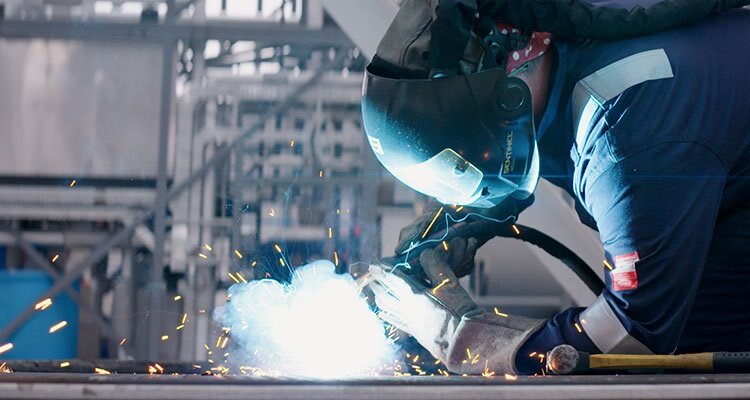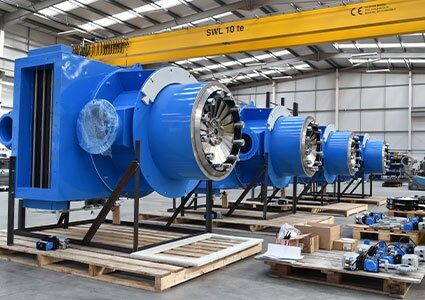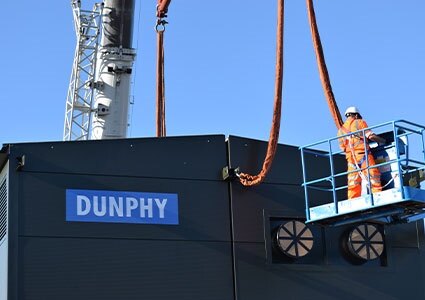
Dunphy Combustion’s legacy: 60 years of pioneering combustion and sustainability
With a rich history spanning almost six decades, Dunphy Combustion Ltd (Dunphy) has established itself as a leading provider of cutting-edge combustion equipment and digital control solutions in the industry. From design and manufacturing to installation and maintenance, Dunphy offers a comprehensive range of products and services. The company’s impressive customer portfolio includes renowned names such as Shell, Nestlé, Heineken, British Gas, and Coca-Cola: a testament to its expertise and reliability. Dunphy takes great pride in its role as a pioneer in industrial decarbonization and sustainability. In fact, the company was the first in the UK to introduce hydrogen burners, demonstrating its commitment to shaping the future of clean and sustainable energy solutions. As Dunphy Combustion approaches its 60-year anniversary next year, the company stands poised to continue pushing boundaries and setting new standards in the industry it has helped shape for decades. Sharon Kuligowski, Managing Director, provides an overview of Dunphy’s history.
 “Our core business revolves around manufacturing combustion equipment, primarily burners and gas boosters. My father, Malcom Dunphy, established the company in 1964. Initially, he served as an electrical engineer at a company called SuperJet Oil and Gas Burners (SuperJet). At that time, SuperJet was one of the four burner manufacturers in Rochdale and one of 60 in the UK. This indicates the market’s size and the differences within it during that period. After completing his time as an electrical engineer, he became a service engineer for SuperJet. Using his electrical engineering skills, he began servicing burners and eventually decided to create one of his own. He built his first burner in his bedroom and somehow managed to find someone to sell it. The first burners he manufactured were relatively small and had a capacity of around 200-to-300 kilowatts. As the business grew and my dad gained more experience, the output of our burners began to increase. Presently, we manufacture burners with capacities of up to 60 megawatts, which signifies a remarkable growth compared to our humble beginnings.
“Our core business revolves around manufacturing combustion equipment, primarily burners and gas boosters. My father, Malcom Dunphy, established the company in 1964. Initially, he served as an electrical engineer at a company called SuperJet Oil and Gas Burners (SuperJet). At that time, SuperJet was one of the four burner manufacturers in Rochdale and one of 60 in the UK. This indicates the market’s size and the differences within it during that period. After completing his time as an electrical engineer, he became a service engineer for SuperJet. Using his electrical engineering skills, he began servicing burners and eventually decided to create one of his own. He built his first burner in his bedroom and somehow managed to find someone to sell it. The first burners he manufactured were relatively small and had a capacity of around 200-to-300 kilowatts. As the business grew and my dad gained more experience, the output of our burners began to increase. Presently, we manufacture burners with capacities of up to 60 megawatts, which signifies a remarkable growth compared to our humble beginnings.
“A pivotal milestone in our history was the designing and developing of modularized plant rooms. This came about due to the extensive knowledge we had in-house regarding steam systems. Prior to this, we used to be the burner manufacturer that sold our products to boiler makers who then installed the equipment. However, this approach had its drawbacks. We had little or no contact with the end client, so it was easy for the customer to change the burner specification without having full knowledge of its impact. Frustrated with this situation, we decided to expand our offering to allow us to provide a complete system directly to the end client,” she explains.
Brand refresh
One of Dunphy’s most recent developments includes a rebranding effort, which Sharon and Matt Brierley, General Manager, discuss in more detail. “We had an original logo that was designed approximately 50 years ago, and over time, we felt that it had become outdated. In my opinion, a good logo should be timeless and should never appear dated. Consequently, we decided it was necessary to undergo a rebranding process that would include a fresh logo and more. During this rebranding, our main objective was to highlight our key strengths, which include being a British manufacturer and our commitment to environmental responsibility and sustainability. We wanted to convey this to the market all while emphasizing our dedication to producing high-quality products. Though the logo was just one element of the overall rebranding effort, it played a crucial role. We have now completed the rebranding process and are very satisfied with the outcome,” begins Sharon.
“The rebranding was agreed upon when we noticed that despite having a great product range, people may not fully appreciate the extent of what we offer. Historically, we have not been very active in promoting ourselves through magazines, and we realized it was time to change that approach. We made a concerted effort to showcase our products and demonstrate our capabilities. As part of this initiative, we revamped our overall brand identity and updated our website to provide more comprehensive and informative content. The website now has a fresh and cleaner look, allowing us to share more information about our products and services with the public. Additionally, we have been actively engaging with the professional networking platform LinkedIn. By sharing stories and engaging with the community, we have been able to generate more interest and interaction. So far, the response has been positive, and our efforts have been well received,” adds Matt.
Sharon sheds light on Dunphy’s distinctive plant rooms and how they have become a cornerstone of their competitive advantage. “The successful implementation of the plant rooms is the culmination of employing highly skilled individuals, training them extensively, and incorporating apprenticeships into our workforce. We have a significant number of long-term employees within our company, with our most tenured employee having been with us for over 49 years. In the past, when supplying burners, which we consider the core component of a boiler house, we often accompanied boilermakers and contractors to assist with design risk assessments, electrical drawings, and other aspects involved in assembling a boiler and boiler house. It was an engineering manager we supplied our services to who suggested that we consider selling and designing the boiler house ourselves. They acknowledged the invaluable assistance we provided, which led to them placing their first order with us. We designed and manufactured all the components in the UK, transported them to the client’s site, and completed the installation. From there, we started offering plant rooms, and interestingly, it felt more like a demand-driven approach rather than us actively promoting them. Typically, boilermakers would approach us when they encountered challenges in off-site manufacturing. They could handle the boiler itself, but they needed our assistance with other components. This gradual growth allowed us to focus on the high-value end market of the wastewater industry. I believe that our ability to construct and install fully functional steam boiler plants off-site in our factory sets us apart in the industry. To my knowledge, no other company possesses this unique capability,” she enlightens.
of the plant rooms is the culmination of employing highly skilled individuals, training them extensively, and incorporating apprenticeships into our workforce. We have a significant number of long-term employees within our company, with our most tenured employee having been with us for over 49 years. In the past, when supplying burners, which we consider the core component of a boiler house, we often accompanied boilermakers and contractors to assist with design risk assessments, electrical drawings, and other aspects involved in assembling a boiler and boiler house. It was an engineering manager we supplied our services to who suggested that we consider selling and designing the boiler house ourselves. They acknowledged the invaluable assistance we provided, which led to them placing their first order with us. We designed and manufactured all the components in the UK, transported them to the client’s site, and completed the installation. From there, we started offering plant rooms, and interestingly, it felt more like a demand-driven approach rather than us actively promoting them. Typically, boilermakers would approach us when they encountered challenges in off-site manufacturing. They could handle the boiler itself, but they needed our assistance with other components. This gradual growth allowed us to focus on the high-value end market of the wastewater industry. I believe that our ability to construct and install fully functional steam boiler plants off-site in our factory sets us apart in the industry. To my knowledge, no other company possesses this unique capability,” she enlightens.
Pushing boundaries
Driven by a strong commitment to sustainability, Dunphy aims to attain comprehensive decarbonization throughout its operations. “When it comes to the burner, we’re not only working towards decarbonization but also towards reducing greenhouse gases. Our focus extends beyond efficiently burning carbon as we also prioritize the mitigation of nitrous oxide emissions. However, our commitment to sustainability goes past our product range and encompasses every aspect of our business. For instance, we have installed LED lighting in our facilities and consistently ensure that all engineers’ vehicles are either electric or hybrid,” Sharon ends.
With an unwavering commitment to sustainability and engineering excellence, Dunphy continues to push the boundaries of combustion technology, providing British-made solutions for decarbonized energy. Through innovative approaches like modular plant rooms and the integration of hydrogen, Dunphy establishes itself as a frontrunner in the industry, forging partnerships with esteemed clients. By dedicating itself to environmental progress and leveraging its expertise, Dunphy is poised to redefine industry standards for years to come.